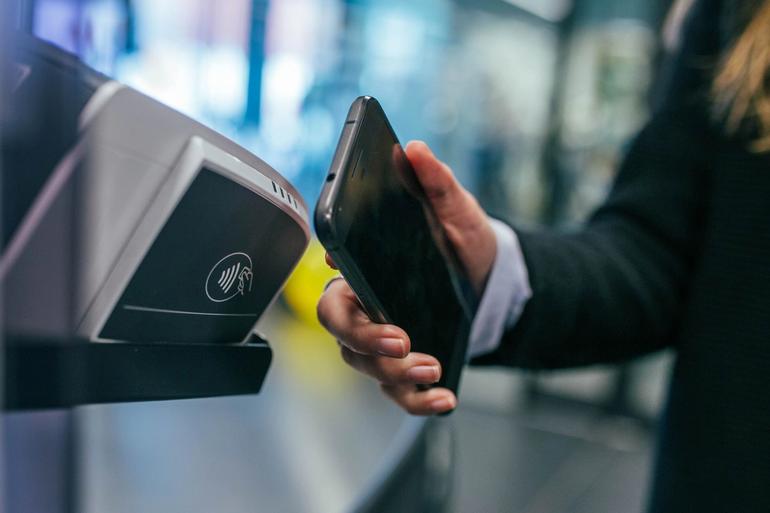What Are the Costs of Mobile Payment
Mobile Payment

What Are the Costs of Mobile Payment?
Consumers in Germany are skeptical about mobile payments. Many are worried about hacker attacks and data privacy. Nevertheless, 47 percent would still prefer using credit cards and cash as methods of payment. Also, the use of mobile payment is not free of charge, and mobile payment providers charge a fee for their services. But if you're in the market for a mobile payment solution, it may be a good idea to check out the costs before making the switch.
Contactless payments
Contactless mobile payments enable customers to pay for goods and services with their mobile phones, thereby removing the need to carry cash or credit cards. This convenience not only benefits customers but also retailers. Without the hassle of carrying cash, customers are more likely to spend more on their purchases. The process is simple: the customer brings his or her mobile device close to a card reader. The transaction is completed instantly.
Most payment processors now support contactless mobile payments. Merchants can accept these payments with a wide range of devices, including mobile readers, point-of-sale devices, and physical retail terminals. It is important for businesses that interact with customers to evaluate whether mobile payments are the best option for them.
Contactless mobile payments are very secure. They do not require swiping, which protects sensitive customer data. The information transferred between the card and the payment terminal is encrypted. In addition, the one-time transaction number tokenizes each purchase. This ensures that it cannot be intercepted. COVID-19, a law that encourages contactless payments, has helped accelerate the adoption of this technology. These technologies are regulated by the U.S. Payments Forum and EMV, the organizations that set technical standards for smart payment cards and PoS readers.
Convenience
Mobile payment options eliminate the need for cash at the point of sale. Customers can pay with a mobile phone, credit card, or payment app with the touch of a finger. These transactions are processed quickly and efficiently by financial institutions. In addition, customers can make purchases from a remote location, such as a festival or concert. With this convenience, more consumers are spending more money. In fact, financial analysts predict that mobile payments will surpass $1 trillion by 2021.
Consumer adoption of NFC-equipped smartphones and wearables for mobile payments is increasing rapidly. In fact, 50 percent of consumers are expected to use their mobile devices for mobile payments by 2018. But even if proximity mobile payments catch on, it will take years to fully replace the existing payments infrastructure. Consumers may not appreciate the inconsistent experience of using mobile payment options compared to the traditional wallet or credit card, but many consumers will continue to use them if the experience is more convenient than using an actual card.
Mobile payment solutions are gaining popularity worldwide because they enable consumers to make purchases with their cell phones even without being present at the time. The convenience of using mobile payment options means that consumers no longer have to worry about carrying cash or trying to find change.
Security
Mobile payment security is a growing concern, and there are a number of steps businesses can take to minimize the risk of fraud. First, they must secure their Internet networks. Without this, they run the risk of losing customer confidence and causing damage to their business. Cybercriminals have advanced technical know-how, so this step is critical.
Next, they should consider how to protect sensitive information. The Payment Service Directive (PSD) 2 outlines requirements for greater consumer privacy and protection. This means organizations need to invest in a robust mobile payment security solution. This means establishing multi-vector protection, including device integrity, software integrity, secure communication, and data protection.
Mobile payment security is an issue that is becoming more important as mobile payment usage increases. However, as with any new technology, there are still many security risks. One of the biggest threats is weak verification procedures. It's also important to consider the latest trends in mobile security.
Costs
When it comes to mobile payment, there are many costs to consider. Generally, all-inclusive services include a merchant account and payment processor, but you should always compare per-transaction fees before choosing a mobile payment service. Look for a low interchange plus pricing or flat-rate pricing to reduce your costs. Per-transaction fees can vary, depending on the card network and the method of payment. For example, some processors charge higher rates for American Express transactions than for others. Also, keyed transactions cost more than swiped transactions.
The costs of mobile money transactions are likely to be one of the most significant factors in determining the uptake of the system in developing countries. Mobile money is especially useful to poor and rural populations because it lets them participate in the financial system without needing to go to a bank. As mobile money has become more widely available, it has helped millions of people gain access to formal financial services. This has led to a variety of benefits for consumers.
Despite the commercial potential of mobile payments, their adoption rate is still far below optimal levels. To overcome this barrier, a new research model, based on a technology acceptance model, is being developed. It incorporates the characteristics of mobile payment as well as the inhibitors that limit their acceptance. The model was then used to analyze data collected from two-hundred and sixty-five consumers from Bangladesh

